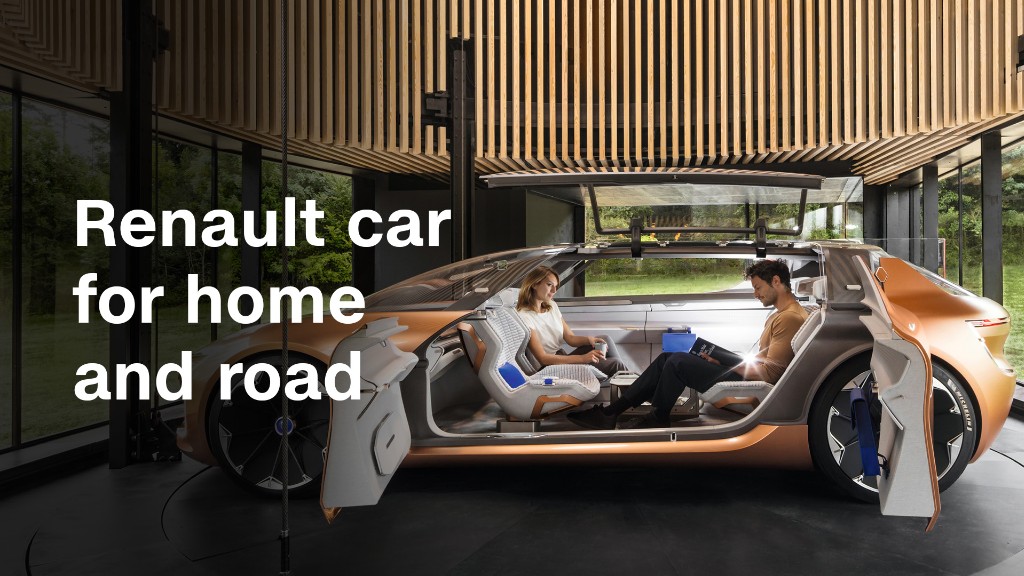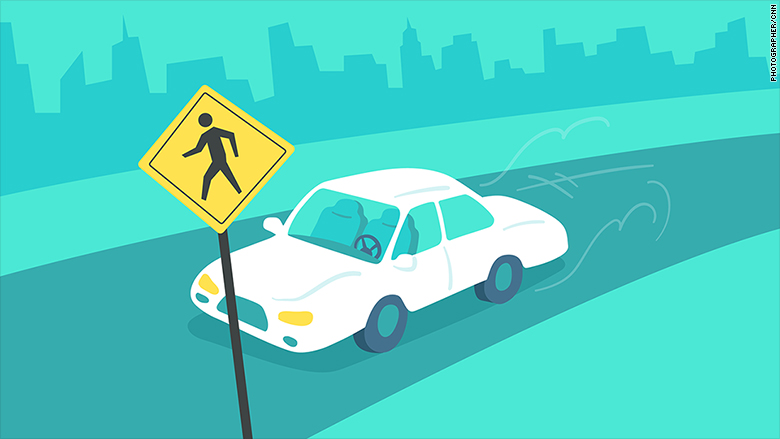
Self-driving cars could convert cities into pedestrian paradises.
A report released this week from the National Association of City Transportation Officials, a nonprofit representing cities on transportation issues, lays out a vision for the future of city streets as autonomous vehicles arrive. Some cities look to NACTO for recommendations, but it's unclear if cities will adopt its guidance.
The blueprint suggests generally limiting self-driving vehicles to 20 mph and allowing pedestrians to cross streets anywhere, rather than only at intersection crosswalks. The speed restriction would be a noticeable decline in top speeds in many cities. This may extend trip times in vehicles.
The technology in self-driving cars will be able to identify when a person is trying to cross a street, and slow down. This could impact the concept of jaywalking.
"The instinctive human act of walking straight to one's destination, pejoratively known as 'jaywalking,' becomes simply 'walking,'" write the authors.

The organization sees the adoption of autonomous vehicles as a chance to rethink how streets function. Under its plan, the big benefactors are those most vulnerable on roads: pedestrians and bicyclists.
When pedestrians want to cross a street, it's not uncommon for them to walk several hundred feet out of their way. This wasn't always the case. A century ago, when cars first emerged, crossing a street mid-block was normal.
Related: How free self-driving rides could change everything
In 1920, the term "jaywalker" was controversial, according Peter D. Norton, author of "In Fighting Traffic: The Dawn of the Motor Age in the American City." It was popularized as a putdown for someone who didn't know how to walk properly in a city. In some cases, Boy Scouts handed out cards to jaywalkers, alerting them of their risky behavior.
In 1925, a law passed in Los Angeles making the move illegal and police arrested some offenders.
Jaywalking is still generally illegal, but not the rule is often not enforced. If streets are occupied by self-driving cars in the future, perhaps the biggest shift in city culture, according to NACTO, would be how easy it would be to cross streets.
But the report warns that the future could also play out differently, depending on city and government policies. Traffic and emissions could skyrocket, and pedestrians could be forced to cross streets on bridges. Current transportation systems could also be replaced by new services that aren't as affordable or accessible.
The Self-Driving Coalition for Safer Streets -- which represents self-driving vehicle companies such as Ford, Uber, Waymo and Volvo -- said in a statement responding to the report that autonomous vehicles should be able to follow the rules of the road, such as speed limits. Individual self-driving car companies declined to comment.
Experts believe self-driving vehicles will significantly change city life, but many details are yet to be worked out. Cities may find themselves weighing tradeoffs, choosing whether to prioritize vehicles, pedestrians and other uses of streets.
"We have a historic opportunity to reclaim the street and to correct the mistakes of a century of urban planning," said Janette Sadik-Khan, NACTO's chair, and the former commissioner of New York City's transportation department, in the report.

